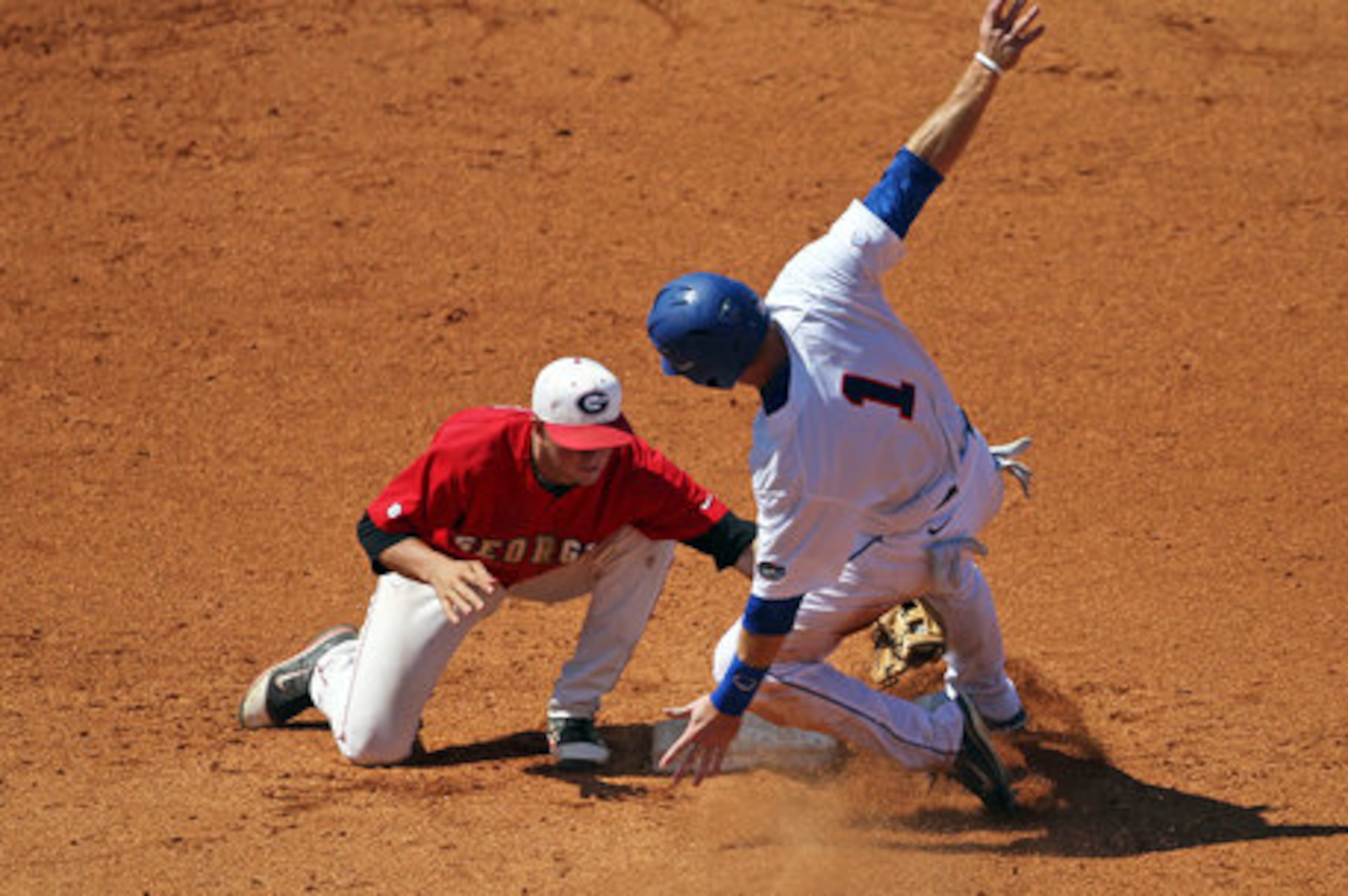Dodgers’ home runs make the difference against Braves in NLDS

The Los Angeles Dodgers hit more home runs than any other National League team during the regular season, 235. The Braves’ pitching staff, on the other hand, allowed the second fewest home runs in the league, 153.
But in the NL Division Series, the Dodgers’ power trumped the Braves’ pitching.
The Dodgers hit eight home runs in the four games of the series, accounting for 14 of their 20 runs with homers. Fittingly, the Dodgers sealed their series-ending 6-2 win in Game 4 on Monday at SunTrust Park on shortstop Manny Machado's three-run homer in the seventh inning.
» Mark Bradley: Braves' future still looks bright
So it went throughout the series.
“I mean, I felt it when we played them in the regular season (too),” Braves manager Brian Snitker said. “They hit home runs. And that, in the postseason, is what carries teams because the pitching is so good that it's hard to bunch things together.
“They’re a very powerful team. It’s what they’ve done all year — hit home runs. And, you know, we’re not built like that yet.”
The Braves hit only two home runs in the series, both in their Game 3 win.
Machado hit two of the Dodgers’ eight homers in the series – a two-run shot in Game 2, which L.A. won 3-0, and the three-run homer to left field on a 1-2 pitch from Braves rookie reliever Chad Sobotka in the seventh inning of Game 4.
“You look back at this series, and his two homers essentially led us to two wins,” Dodgers manager Dave Roberts said.
Machado hit 37 home runs during the regular season -- 24 with the Baltimore Orioles and 13 with the Dodgers after they acquired him in July. The Dodgers had seven other players finish the regular season with 20 or more homers -- Cody Bellinger (25), Yasmani Grandal (24), Kike Hernandez (21), Matt Kemp (21), Max Muncy (35), Joc Pederson (25) and Yasiel Puig (23).
» Michael Cunningham: Braves have something to build on
So the power the Dodgers displayed in the NLDS was a continuation — an expansion — of what they showed all season.
Among NL pitching staffs, only the Cardinals gave up fewer home runs this season than the Braves. But the Dodgers’ sluggers obviously were unimpressed by that statistic.
In NLDS Game 1, the Dodgers beat the Braves 6-0 and scored five of their runs on homers. In Game 2, the Dodgers won 3-0 and scored all of their runs on homers. In Game 3, a 6-5 Braves win, the Dodgers scored three runs on homers. And in Game 4, Machado’s home run accounted for half of the Dodgers’ runs, expanding a tenuous 3-2 lead to 6-2.
One of the runners who scored on Machado’s homer Monday reached base via a walk, as did the runner who scored the game’s first run on Machado’s two-out double off Braves starter Mike Foltynewicz in the first inning. In the four games, Braves pitchers walked 27 batters.
“We walked a few too many people, gave up a few too many bases,” Foltynewicz said. “That hurt us, especially against that kind of lineup where 1 through 9 they can put it out of the park and put it in the gap.”
The Braves showed the importance of postseason home runs, too, with a Ronald Acuna grand slam and a Freddie Freeman solo homer fueling their only win of the series Sunday night. But the Braves hit no home runs in the other three games and scored only eight runs in the series.
“It’s definitely hard in the playoffs to get three hits in a row to score some runs,” said Freeman, endorsing the necessity for home runs.
The series also underscored the importance of in-season trades by contending teams. All six of the Dodgers’ RBIs Monday were produced by players acquired in July and August – four by Machado and two by David Freese, whose two-out two-run pinch-hit single in the sixth inning gave L.A. a 3-2 lead.
“I've been locked in all series,” Machado said. “(Monday) I was just able to make hard contact and not miss two balls that were a big key to our win.”



